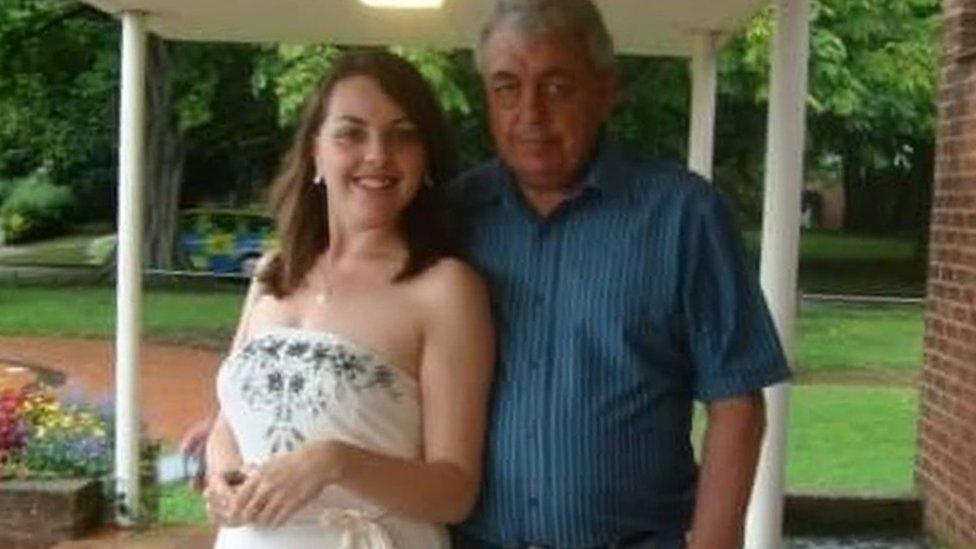NHS in Wales and GPs face collapse, BMA union says
- Published
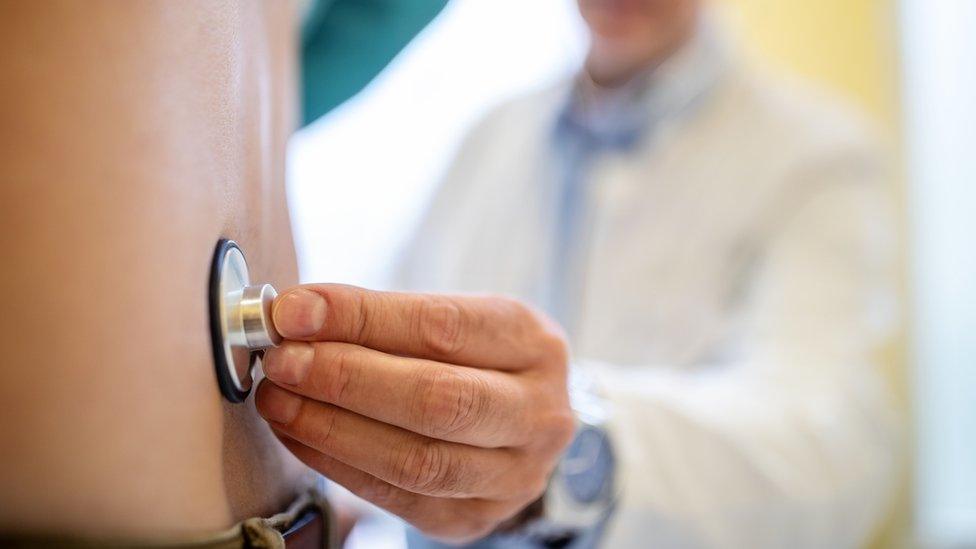
The number of patients GPs are expected to treat is going up, but doctors say their workload cannot be sustained
GP services "will collapse in Wales and the NHS will follow" soon after unless urgent support is provided, the British Medical Association has warned.
As patient levels rise, numbers of GP surgeries and doctors are falling amid inadequate resources and unsustainable workloads, BMA Cymru Wales has claimed.
It has written to the Welsh government, urging more funding and staff help.
The Welsh government said it had taken steps to help, such as increasing services by community pharmacists.
However, several pharmacists have contacted the BBC expressing concerns over the level of funding the Welsh government is providing to community pharmacies.
Launching its Save Our Surgeries campaign, the BMA said the number of GP practices in Wales had decreased by 18% in the past decade from 470 to 386.
It said the equivalent number of full-time GPs had also dropped by 456 (21.7%), from 1,901 to 1,445.
Meanwhile, the number of patients registered at practices had increased by 93,317 (2.9%).
A BMA survey was sent to all 386 GP surgeries across Wales, and 240 responded.
It found 80% of respondents feared their high workload meant they were unable to provide quality and safe care to patients, while 26.6% were considering leaving the profession in the near future.
Dr Suhair Alwan, 40, became a GP partner at a surgery in Wrexham in 2020.
She said she considers herself capable of working under pressure, but the administration, communication and managing staff, resources and her own patients made this "extreme".
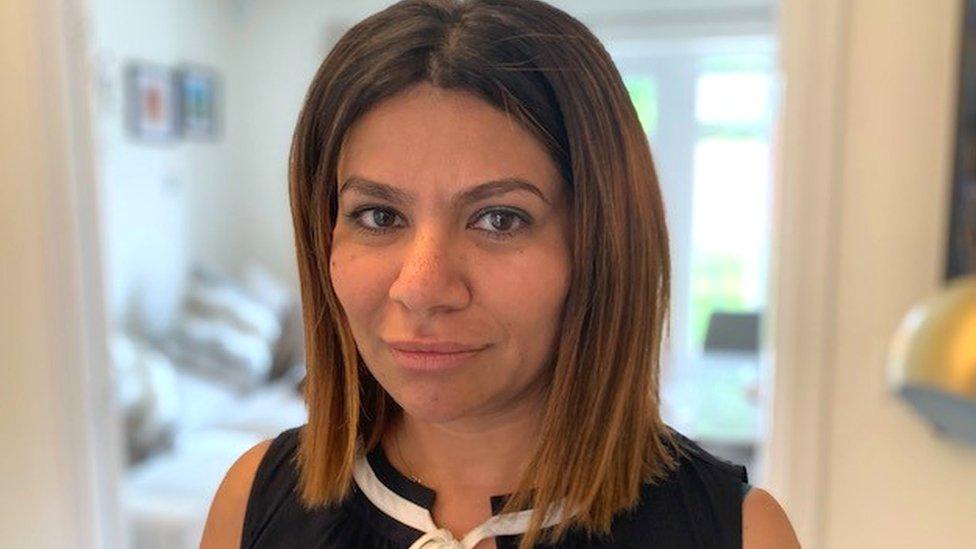
Dr Suhair Alwan says the pressure on her as a GP was "extreme"
It moved from being the "most satisfying job to the most stressful job, which is sad to witness," she said.
Then, in June 2021, she said the workload almost claimed her life.
She was so busy she ignored what she thought were flu-like symptoms.
"I soldiered on, and then deteriorated pretty rapidly and ended up in hospital for 10 days with sepsis," she said.
"It was tough. On a few occasions I thought that was the end of it, and I was going to lose my life, leaving a young child behind."
She said she was sick for about three months, and when she did return to work as a partner, she realised the demands of the job had not changed ad decided to retire.
"Because I was lucky to survive this time, there's a good chance that next time that won't be the case, so the logical decision was to leave."
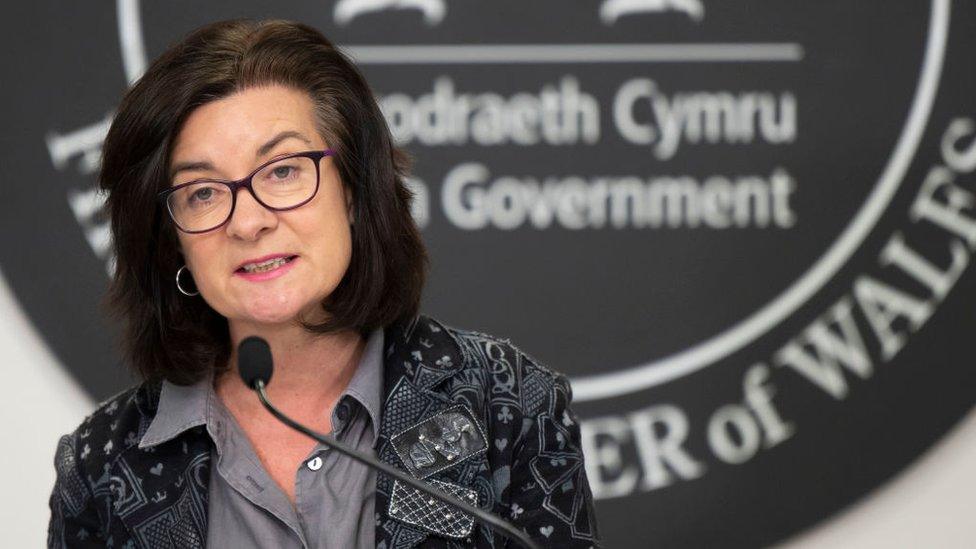
The BMA has asked Health Minister Eluned Morgan to set a maximum number of patients GPs can "reasonably deal with during a working day"
After her "near-death experience", Dr Alwan analysed her previous workload, saying she was regularly interrupted for help with assessments.
"Interruption is a well-known cause, a dangerous source of error and I felt both myself and the patients I was dealing with were at extreme risk due to that interruption."
Dr Alwan believes the pressure on GP partners is so great that hundreds of wrong decisions could be made daily.
"I feel the health system is approaching a level of dysfunction that there is almost no point seeking healthcare.
"If GPs are so distracted they make bad decisions - some of which could be life-ending for patients - then there ends up being no difference if you see your GP or not."
She now works as a self-employed locum GP in Flintshire and Wrexham, and is able to concentrate on patient care as opposed to the administration involved in running a practice.
She echoed the BMA's concerns over the future of GPs and said secondary care "would collapse in a matter of days" without them.
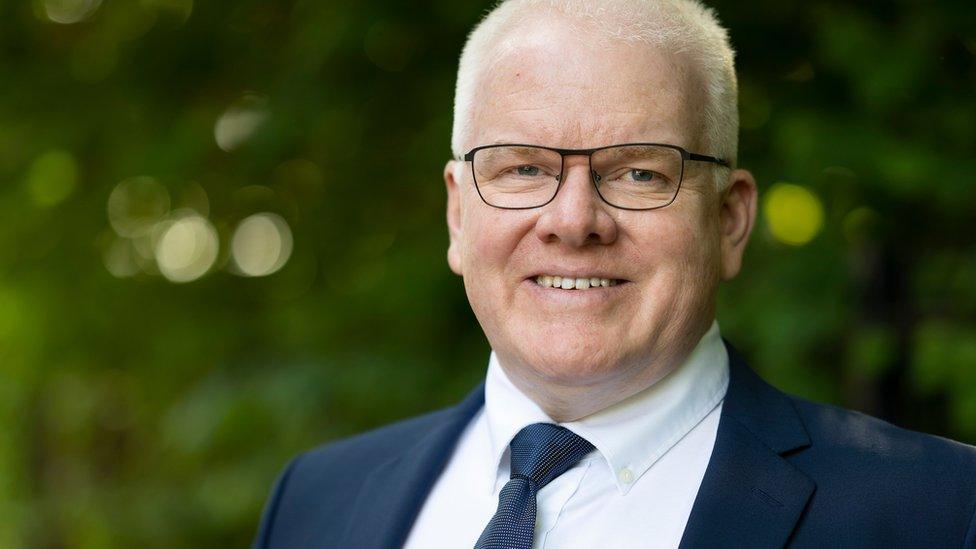
"Unless urgent action is taken to address workload, workforce and wellbeing, the service is at risk," says Dr Gareth Oelmann of BMA Cymru
Dr Gareth Oelmann, chair of the BMA's general practitioners committee in Wales, said he would expect staff to hand back their contracts without resolving the issues GPs are facing.
"And ultimately, if practices continue to close as they are then the general practice will collapse in Wales and the NHS will follow soon with it."
In a letter to Health Minister Eluned Morgan, the BMA called for increased funding in general practice and a maximum number of patients "GPs can reasonably deal with during a working day".
It also asked for a boost to the training, recruitment and retention of GPs, and the introduction of a long-term strategy to improve the wellbeing of the workforce.
The Welsh government said there were 11 more GPs registered in September 2022 (1,974), compared with 1,963 in September 2020. There were 1,926 GP practitioners in 2017.
A spokesman said: "We greatly value the work GPs - and all healthcare staff in GP practices - do every day.
"We continue to take steps to reduce pressure on GPs, such as the introduction of NHS 111 Wales and increasing the range of services community pharmacists can provide. The new unified GP contract will help to reduce bureaucracy and free up more time for GPs to see patients."
The BMA said the Welsh government figures did not take into account whether GPs were working full or part time.
- Published26 January 2023
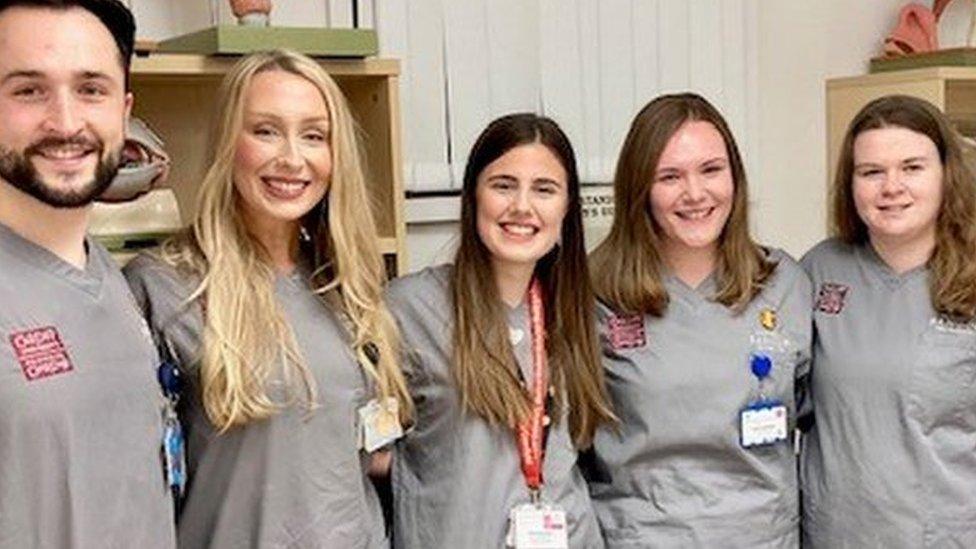
- Published23 February 2023
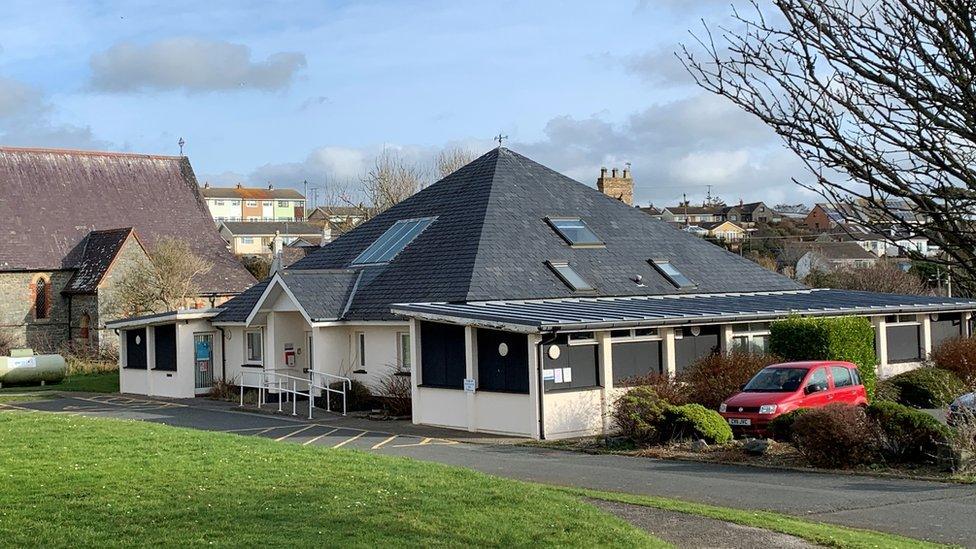
- Published23 September 2021
